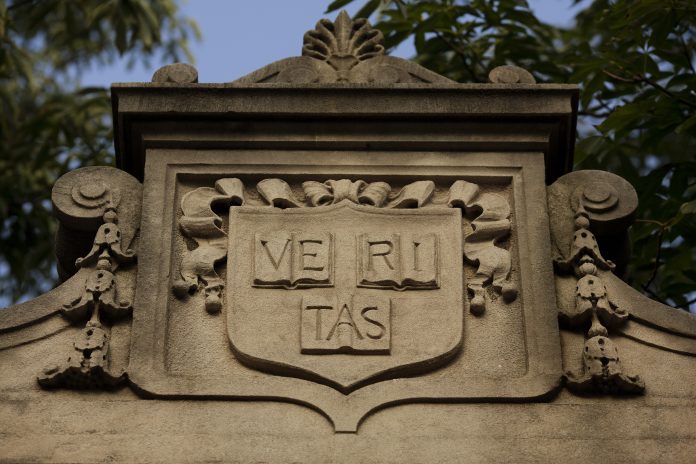
NEW YORK – Yale, Brown and Princeton universities were among more than a dozen elite schools that endorsed Harvard University’s practice of considering race as a piece of its admissions processes.
The schools said in a court filing Monday that it’s essential to consider race in the admissions process to attain “diverse student bodies.” They urged the judge to uphold an approach that includes a student’s socioeconomic background, academic merit, parental education level and leadership skills, along with ethnicity and race.
The filing came in a friend-of-the-court brief in which the schools backed Harvard in a 2014 lawsuit by Students for Fair Admissions, which claims Harvard discriminates against Asian-American applicants. A trial is scheduled for October as a federal judge in Boston weighs whether the case should proceed or be decided sooner.
“A decision by this court forbidding all consideration of race in the admissions process would compromise (the schools’) efforts to attain diverse student bodies,” according to a 20-page brief.
The filing came from seven other members of the Ivy League – Brown, Columbia, Cornell, Dartmouth, Princeton, the University of Pennsylvania and Yale – along with Case Western, Duke, Emory, George Washington, Johns Hopkins, MIT, Stanford, Vanderbilt and Washington University. None of them is party to the Harvard lawsuit.
Harvard has asked the judge to toss the lawsuit, saying admissions data and other evidence doesn’t show any purposeful discrimination or “racial balancing.” The plaintiffs “cherry-picked” documents to form a “misleading narrative” about the school’s admissions process, the school said.
Students for Fair Admissions, backed by Edward Blum, a longtime crusader against affirmative action, says Harvard gives low “personal rating” scores to Asian American applicants with high academic marks in order to illegally shape its class.
In its filing Monday, the other schools said they seek “a diversity of perspectives, experiences, goals, backgrounds, races, ethnicities and interests” in the admissions process. “Doing so significantly deepens the students’ educational experience” and “encourages students to question their own assumptions, to test received truths and to appreciate the complexity of the modern world,” they wrote.
Supreme Court
They also argue that the U.S. Supreme Court, while outlawing a quota system for admissions, has allowed colleges to take an “individualized and holistic” approach. Citing a 2013 high court case, the schools said they seek to evaluate each prospective student “as an individual and not in a way that makes an applicant’s race or ethnicity the defining feature of his or her application.”
Others also weighed in on Monday.
A group of Harvard alumni, students and applicants, including seven of Asian heritage, backed the school’s admission practices and said that the number of minority students would drop dramatically if race were no longer a factor.
Nicole Ochi, an Asian Americans Advancing Justice lawyer working on the group’s behalf, said in a call with reporters that there are too many applicants with perfect test scores and grade-point-averages to consider only academic merit.
“Test scores, grades – they’re not objective,” she said in a press call. “The consideration of race in Harvard’s admission process benefits everyone.”
‘Narrowly tailored’
The American Council on Education, along with three dozen other higher-education groups, also asked the judge not to interfere with any university’s “narrowly tailored” use of race.
“Each university’s unique mission and context may call for the need to evaluate differently certain characteristics, experiences and backgrounds of various prospective students in order to achieve the university’s educational mission,” the groups wrote.
But attorneys for a group of conservative academics in the National Association of Scholars cited “uncanny parallels” between Harvard’s handling of Asian-American applicants and its use of a quota system to exclude Jews in the 1920s.
“This record is replete with evidence of a de facto Asian quota startlingly similar to the one that Harvard once imposed on Jews; of impermissible racial proportionality, or ‘balancing,’ in admissions; and of biased views about the personal characteristics of Asian applicants,” said the association, which is based in New York.
The case is Students for Fair Admissions Inc. v. President and Fellows of Harvard College, 14-cv-14176, U.S. District Court, District of Massachusetts (Boston).
Sydney Maki and Janelle Lawrence are reporters for Bloomberg News.










